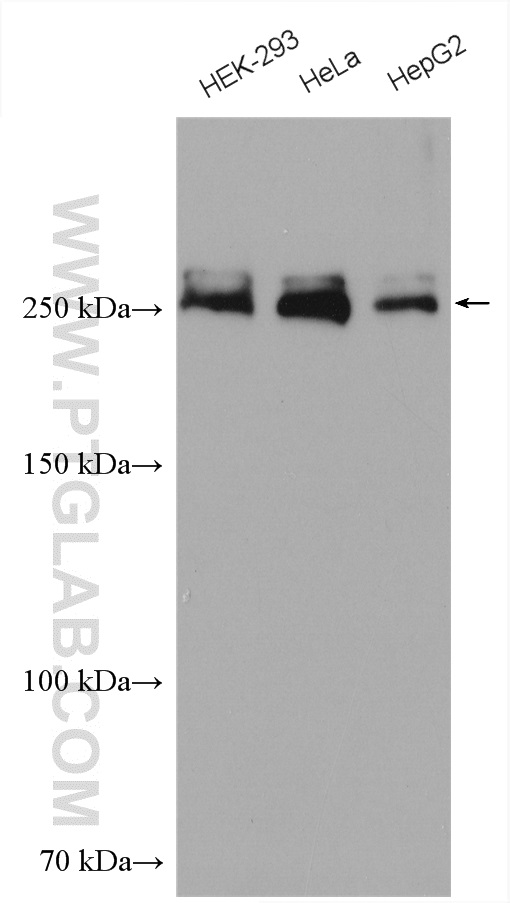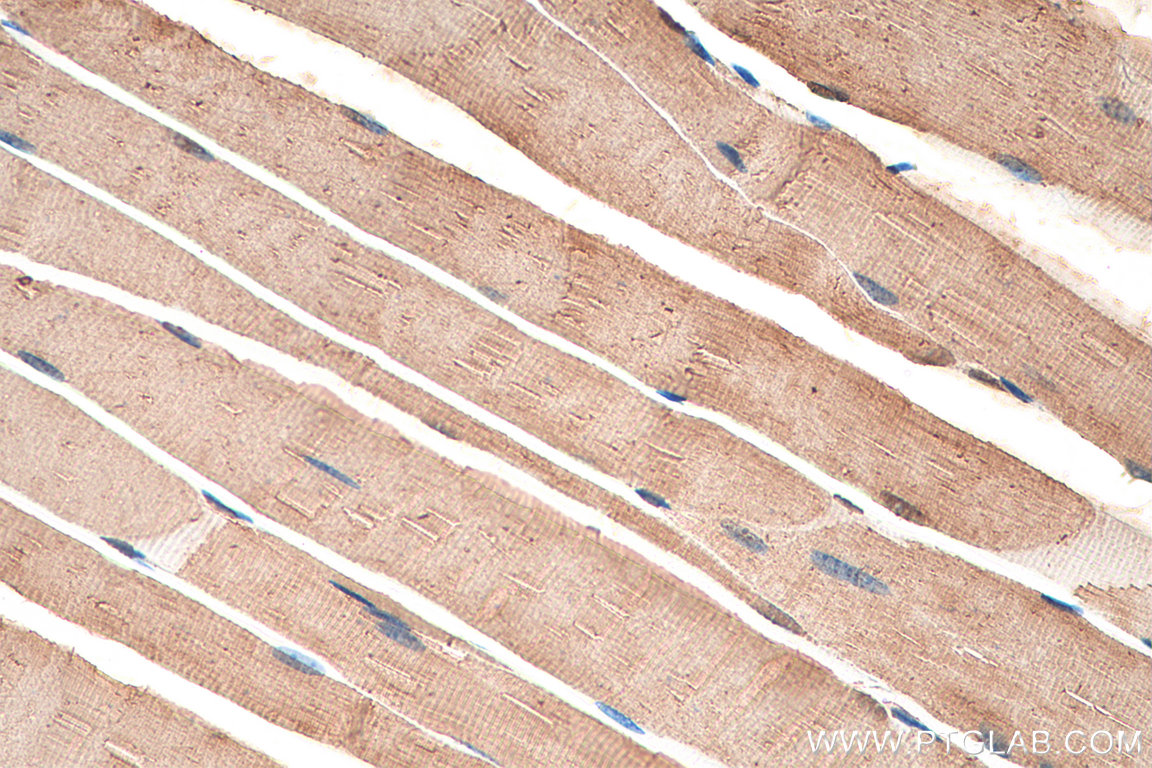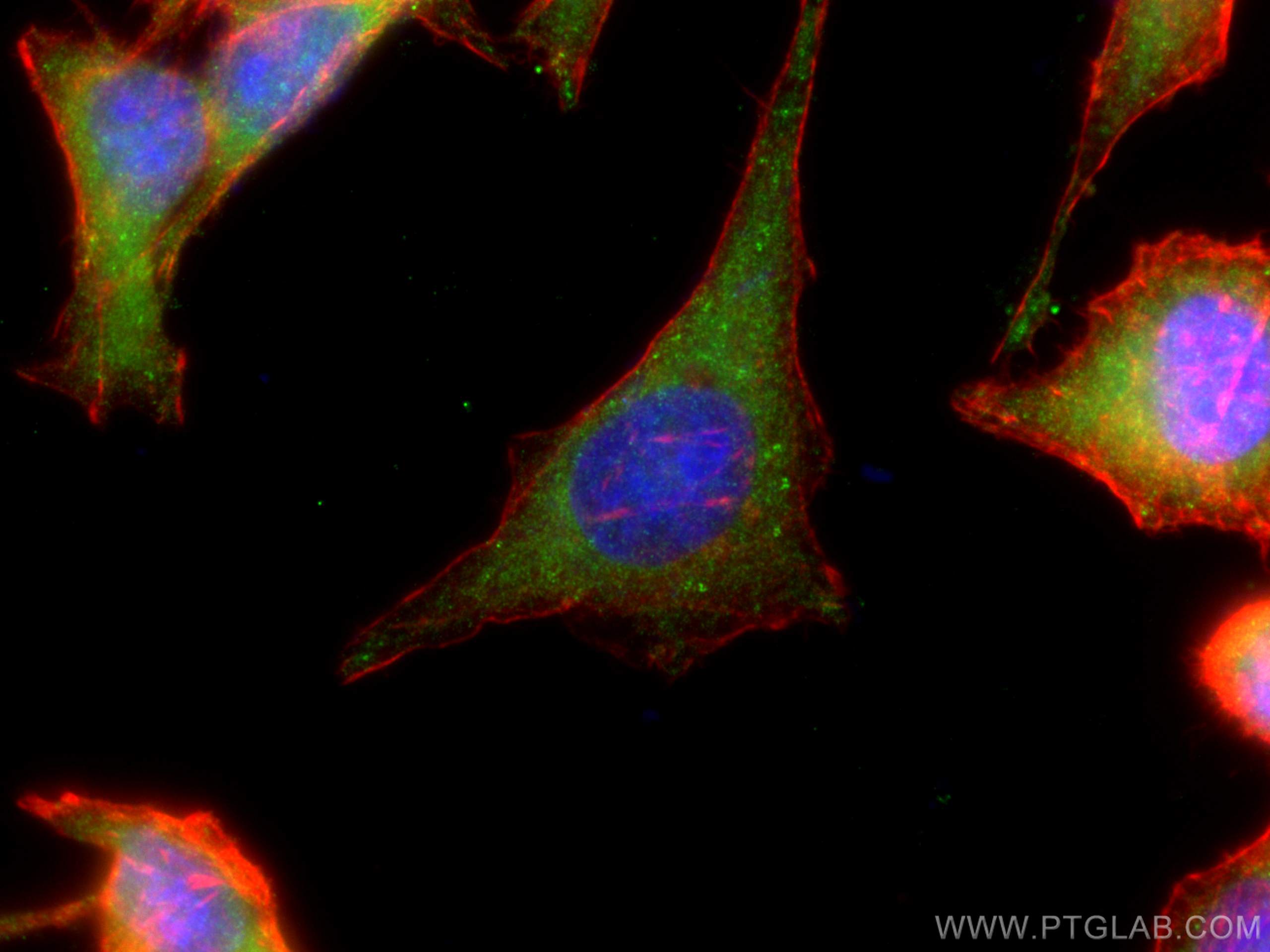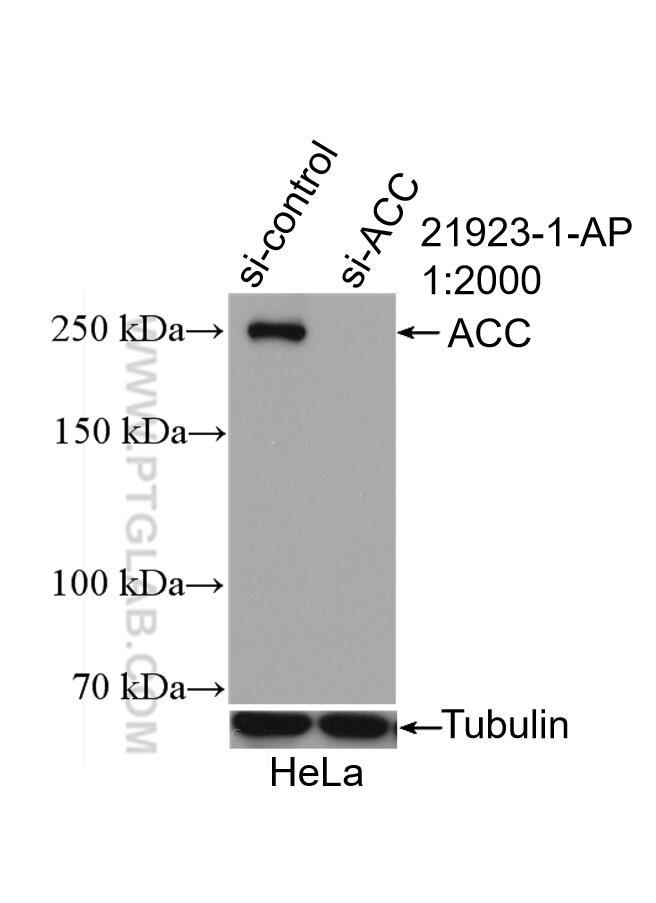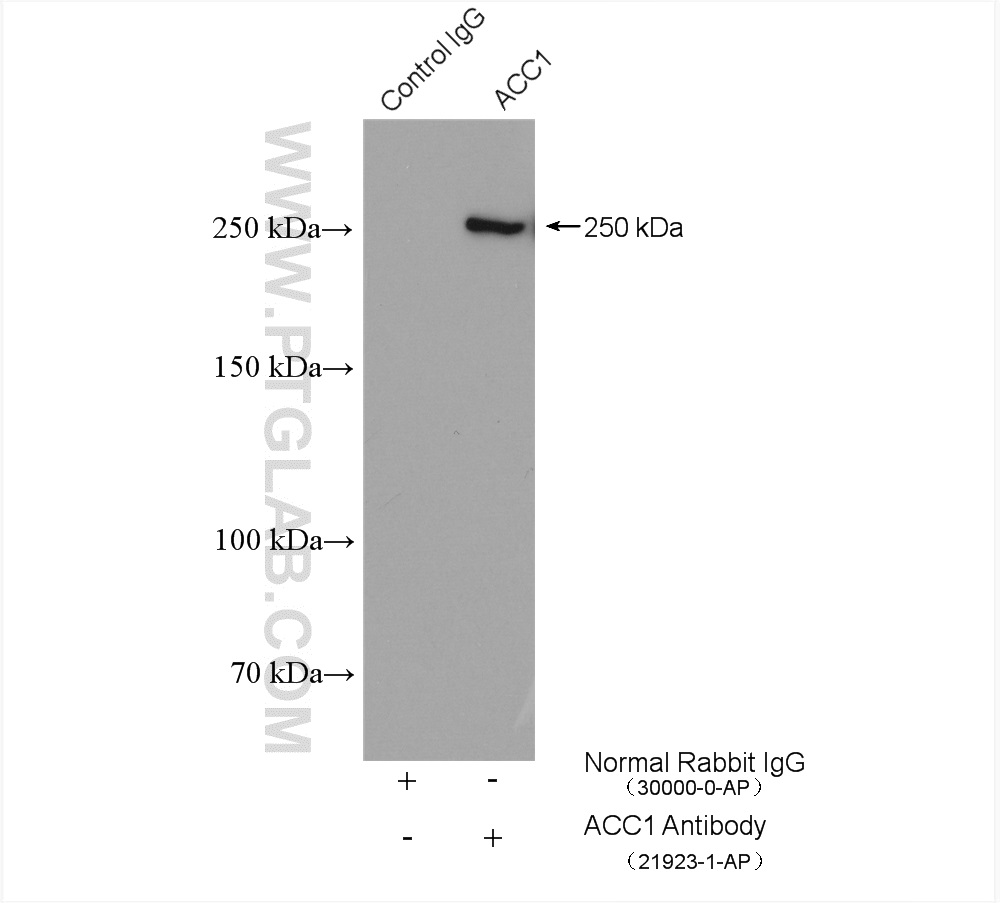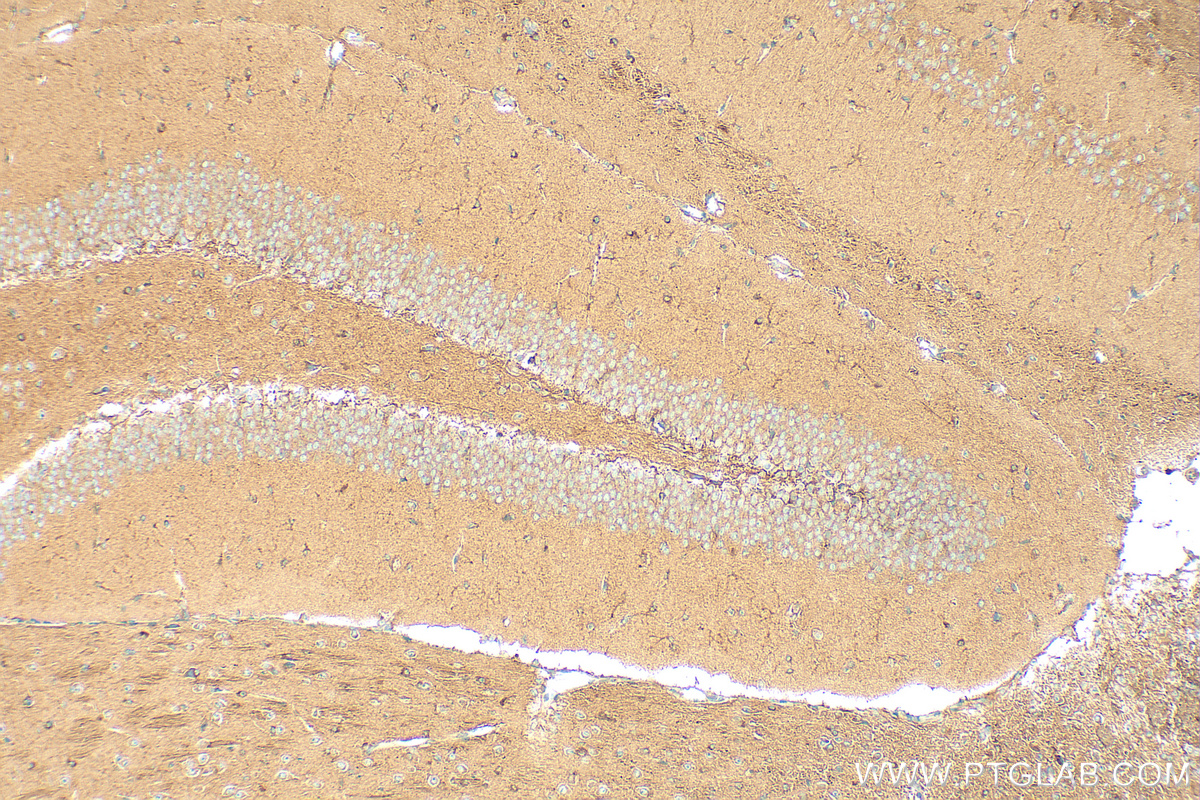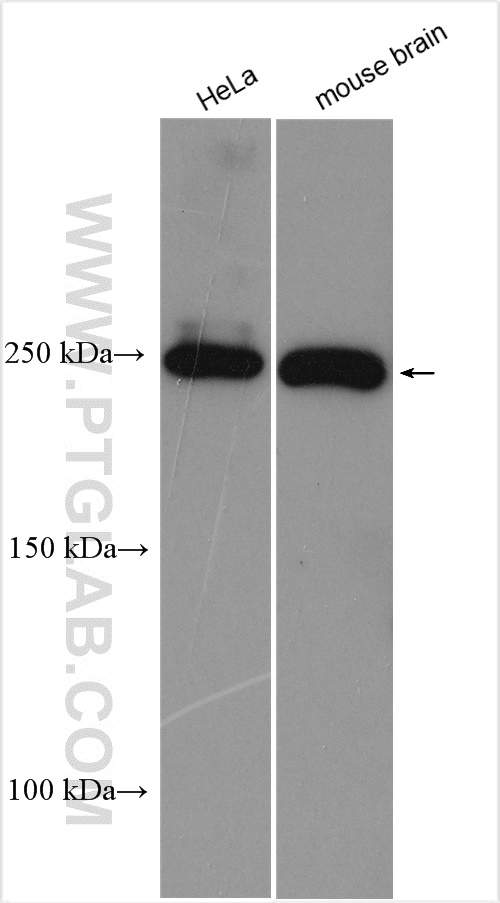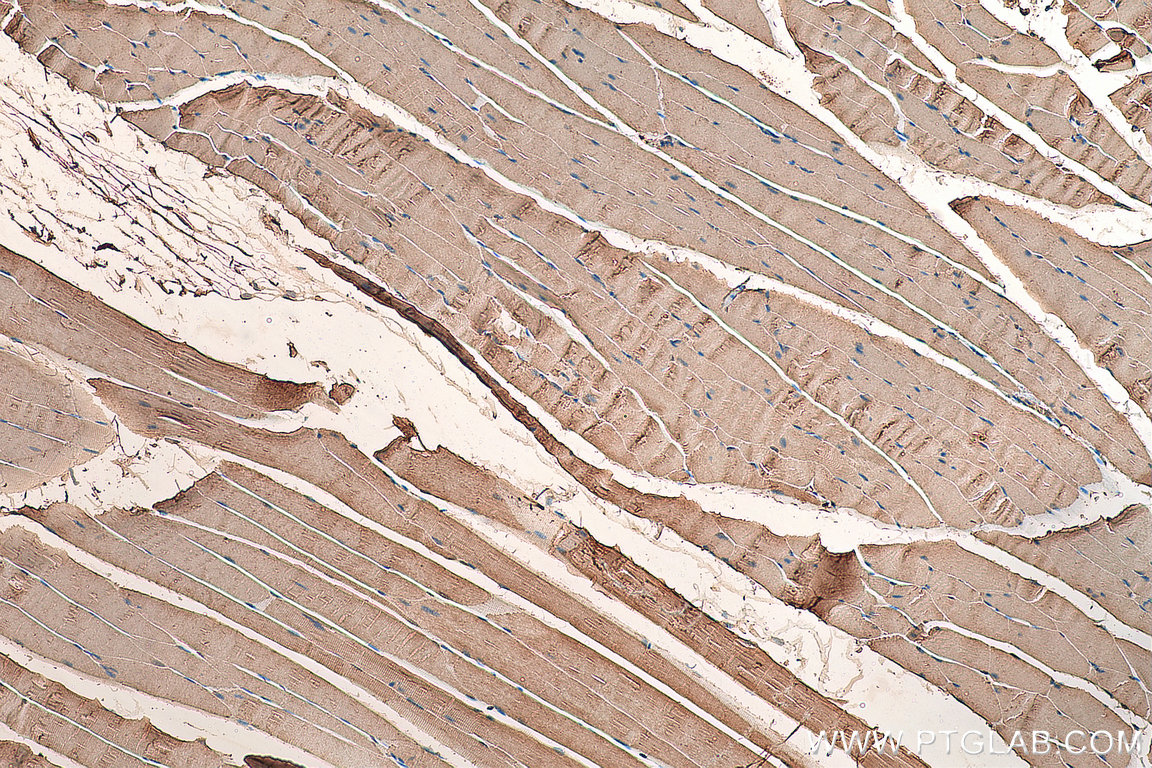验证数据展示
经过测试的应用
| Positive WB detected in | HEK-293 cells, HeLa cells, mouse brain tissue, HepG2 cells |
| Positive IP detected in | HepG2 cells |
| Positive IHC detected in | mouse skeletal muscle tissue, mouse brain tissue Note: suggested antigen retrieval with TE buffer pH 9.0; (*) Alternatively, antigen retrieval may be performed with citrate buffer pH 6.0 |
| Positive IF/ICC detected in | HeLa cells |
推荐稀释比
| 应用 | 推荐稀释比 |
|---|---|
| Western Blot (WB) | WB : 1:1000-1:8000 |
| Immunoprecipitation (IP) | IP : 0.5-4.0 ug for 1.0-3.0 mg of total protein lysate |
| Immunohistochemistry (IHC) | IHC : 1:50-1:500 |
| Immunofluorescence (IF)/ICC | IF/ICC : 1:50-1:500 |
| It is recommended that this reagent should be titrated in each testing system to obtain optimal results. | |
| Sample-dependent, Check data in validation data gallery. | |
产品信息
21923-1-AP targets ACC1 in WB, IHC, IF/ICC, IP, RIP, ELISA applications and shows reactivity with human, mouse, rat samples.
| 经测试应用 | WB, IHC, IF/ICC, IP, ELISA Application Description |
| 文献引用应用 | WB, IHC, IF, IP, RIP |
| 经测试反应性 | human, mouse, rat |
| 文献引用反应性 | human, mouse, rat, pig, chicken, bovine |
| 免疫原 | ACC1 fusion protein Ag16452 种属同源性预测 |
| 宿主/亚型 | Rabbit / IgG |
| 抗体类别 | Polyclonal |
| 产品类型 | Antibody |
| 全称 | acetyl-Coenzyme A carboxylase alpha |
| 别名 | ACACA, ACAC, Acetyl CoA carboxylase 1, ACC-alpha, ACCA |
| 计算分子量 | 2383 aa, 275 kDa |
| 观测分子量 | 250 kDa |
| GenBank蛋白编号 | BC137287 |
| 基因名称 | Acetyl-CoA Carboxylase 1 |
| Gene ID (NCBI) | 31 |
| RRID | AB_11042445 |
| 偶联类型 | Unconjugated |
| 形式 | Liquid |
| 纯化方式 | Antigen affinity purification |
| UNIPROT ID | Q13085 |
| 储存缓冲液 | PBS with 0.02% sodium azide and 50% glycerol pH 7.3. |
| 储存条件 | Store at -20°C. Stable for one year after shipment. Aliquoting is unnecessary for -20oC storage. |
背景介绍
ACACA(Acetyl-CoA carboxylase 1, ACC), also named as ACAC, ACC1 and ACCA, belongs to the biotin containing enzyme family. It catalyzes the synthesis of malonyl-CoA, which is an intermediate substrate playing a pivotal role in the regulation of fatty acid metabolism and energy production. ACACA is involved in the biosynthesis of fatty acids, and malonyl-CoA produced is used as a building block to extend the chain length of fatty acids by fatty acid synthase (FAS)(PMID:19900410). It has 4 isoforms produced by alternative promoter usage with the molecular weight between 260 kDa and 270 kDa.
实验方案
| Product Specific Protocols | |
|---|---|
| WB protocol for ACC1 antibody 21923-1-AP | Download protocol |
| IHC protocol for ACC1 antibody 21923-1-AP | Download protocol |
| IF protocol for ACC1 antibody 21923-1-AP | Download protocol |
| IP protocol for ACC1 antibody 21923-1-AP | Download protocol |
| Standard Protocols | |
|---|---|
| Click here to view our Standard Protocols |
发表文章
| Species | Application | Title |
|---|---|---|
Cell Res Mannose antagonizes GSDME-mediated pyroptosis through AMPK activated by metabolite GlcNAc-6P | ||
Cell Metab Elevation of JAML Promotes Diabetic Kidney Disease by Modulating Podocyte Lipid Metabolism. | ||
Adv Sci (Weinh) Transcriptional Regulation of De Novo Lipogenesis by SIX1 in Liver Cancer Cells | ||
Hepatology Acetyl-CoA carboxylase α promotion of glucose-mediated fatty acid synthesis enhances survival of hepatocellular carcinoma in mice and patients.
| ||
EMBO J TFAM loss induces nuclear actin assembly upon mDia2 malonylation to promote liver cancer metastasis. | ||
EMBO J Fatty acid synthesis is critical for stem cell pluripotency via promoting mitochondrial fission.
|
